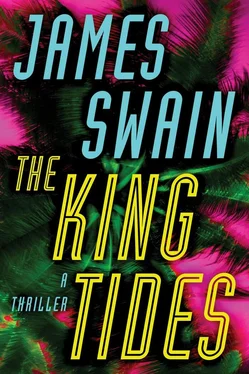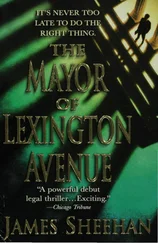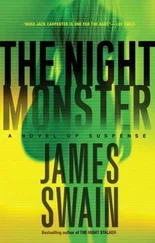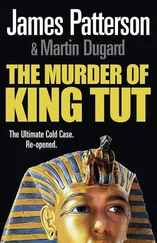“Do you know how they’re getting the coke out?”
“It’s pretty clever. The thief is using the coke to train a drug-sniffing dog, then he’s switching it with flour before returning it to the property unit.”
“Okay. I’ll see what I can do.”
He followed her through the apartment to the study. His hunch that the Hanover killers were male nurses had paid off. It was a satisfying feeling, but it didn’t match the elation that he knew Special Agent Daniels was experiencing. Not only was she about to capture a pair of elusive serial killers, she was also going to bring to justice the two men who’d tried to abduct her when she was a college student. He couldn’t think of a more satisfying outcome and looked forward to experiencing it with her.
On his desk was a pile of papers she’d printed off his laser printer. She triumphantly handed him the top two sheets. “Our killers’ names are Jack Butler and Brandon Rhoden, and they both worked as ER nurses at Dartmouth-Hitchcock during the time of the Hanover killings,” she said. “These documents are their work history, courtesy of my HR friend at the hospital.”
He studied the two pages. Butler and Rhoden had started at the hospital at the same time, and they’d left their jobs at the same time as well. He strained his memory and realized they’d left their jobs three months after Daniels’s failed abduction.
“Did your HR contact know if they quit, or if they were fired?” he asked.
“My contact said it was by mutual agreement. She said that they both showed a lack of compassion for patients in need of critical care.”
“Are they sociopaths?”
“That would be my guess.”
From the pile, she removed two sheets that were paper clipped together and handed them to him. The logo at the top of the first page said NCSBN, which stood for National Council of State Boards of Nursing. “I contacted the NCSBN to see where Butler and Rhoden went next,” she said. “The NCSBN keeps data on every registered nurse in the country and has five million active names in its database. They spent a year working at a hospital in Dayton, Ohio, another year at a hospital in Asheville, North Carolina, and then stints in Atlanta, Baton Rouge, and Houston, with each job never lasting longer than twelve months.”
Atlanta and Houston were two of the three cities where the killers had dropped off film of their female victims to pharmacies to be developed, the third being Fort Lauderdale. The circumstantial evidence against Butler and Rhoden was building.
“Moving is expensive,” he said. “Is there any way to find out why they didn’t stay for more than a year at any of these hospitals?”
“Not easily,” she said. “It’s personal information, and those hospitals won’t release it without a court order. I’m sure it was for the same reasons as Dartmouth-Hitchcock. The staff realized they weren’t normal, and they were pushed out.”
“But the staffs didn’t report them, so Butler and Rhoden continued to find work.”
“Correct. As I’m sure you’re aware, people in the medical profession are loathe to turn on bad doctors and nurses, even when they’re monsters.”
“You mean like Michael Swango.”
“Exactly. Just like Swango.”
Dr. Michael Swango was living proof that the medical profession did not know how to police itself. Over a span of seventeen years, Swango had been instrumental in the deaths of several patients, first while working as an ambulance attendant, then as a doctor. He had poisoned numerous patients and coworkers, yet had managed to keep his license and was employed as a doctor overseas at the time of his arrest by the FBI.
“Now here’s the good stuff,” Daniels said.
In her hand was a rap sheet, courtesy of the National Crime Information Center. NCIC documents were instantly recognizable due to their distinct dark font and logo being prominently stamped on the top of every page. He traded her the NCSBN documents.
“That’s Rhoden’s arrest record,” she added.
He studied the page. Rhoden’s journey to the dark side had started in Dayton, where he’d been arrested for accessing child pornography off a computer at the hospital where he was employed. His second arrest had occurred at a hospital in Asheville, where he’d also been caught downloading illegal images of kids. He’d been a good boy in Atlanta and Baton Rouge, but then got caught with his hand in the cookie jar in Houston, where he’d been arrested for attempting to procure sex with an undercover cop posing as a teenager in a chat room, also on a hospital computer.
“Why does Rhoden use computers at hospitals?” he asked. “He would have to know that he’d lose his job if he got caught.”
“It’s a ploy that many predators use,” she said. “Their lawyer can claim that the computer in question was used by other people at the hospital, therefore making it impossible to prove beyond a reasonable doubt that their client actually did it.”
“Does it work?”
“It worked for Rhoden. His attorney got the charges against him reduced in every case. Bastard never did time, just house arrest.”
“But he does have a record. So how did he keep getting hospital jobs?”
“I asked myself the same question,” she said. “If you look closely at his work record, you’ll see that he slightly changed his last name on his job applications. He added an r and spelled his name Rhorden on each application. That way, his rap sheet didn’t come up when the hospital did a background check on him.”
He found himself nodding. It was the type of ingenious trick that could allow a serial predator to work at a respectable job and fly beneath the radar.
“What about Butler?” he asked. “Does he have a record?”
“Yes, and it’s ugly.”
She passed him Butler’s rap sheet, and he spent a moment reading it. Butler had the same number of arrests as Rhoden and for similar offenses, ranging from downloading illegal images to trying to procure sex with a minor. The crimes had taken place on computers where he worked and in one case on a computer at a public library.
“Let me guess,” he said. “He kept being employed by altering his name on his work applications.”
“Correct, only he altered his first name,” she said. “On his work applications, he goes by Jack. His actual first name is Jace. That’s what’s on his driver’s license, and that was what got recorded each time he was arrested, only he calls himself Jack.”
“Were his convictions also pleaded down?”
“Correct again. Believe it or not, he and Rhoden used the same lawyer. I wouldn’t be surprised if they have him on retainer.”
He handed the rap sheets back to her. Rhoden and Butler had created a subterfuge that allowed them to commit heinous crimes while remaining employed. Each time they got caught, they moved to another city and went right back to breaking the law.
“You’re sure they’re our killers?” he asked.
Daniels pulled back in her chair. It was not the response she was expecting.
“You sound skeptical,” she said.
“There’s a hole here that needs to be filled,” he said. “If Rhoden and Butler are our guys, why is there a gap in their killings? The two murders at Dartmouth College took place twenty years ago. The new killings started seven years ago. That’s a gap of thirteen years. Why did they stop?”
She took a deep breath before replying. When she did answer him, the words were filled with pain. “They stopped because of what happened in the forest when they were chasing me. I’m pretty fast, and they must have realized they weren’t going to catch me because they were both cursing under their breath. I heard one of them fall, and the other fell on top of him. I spun around and saw them lying in the dirt. The one on top was looking right at me. I could see his eyes through his ski mask. His right eye had a milky discoloration, either from a scar or an infection. I shook my fist and said, ‘I know what you look like, you dirty motherfucker! I’ll get you one day!’ Then, I bolted. I didn’t tell the author of The Hanover Killers that part, so it didn’t end up in the book.”
Читать дальше











